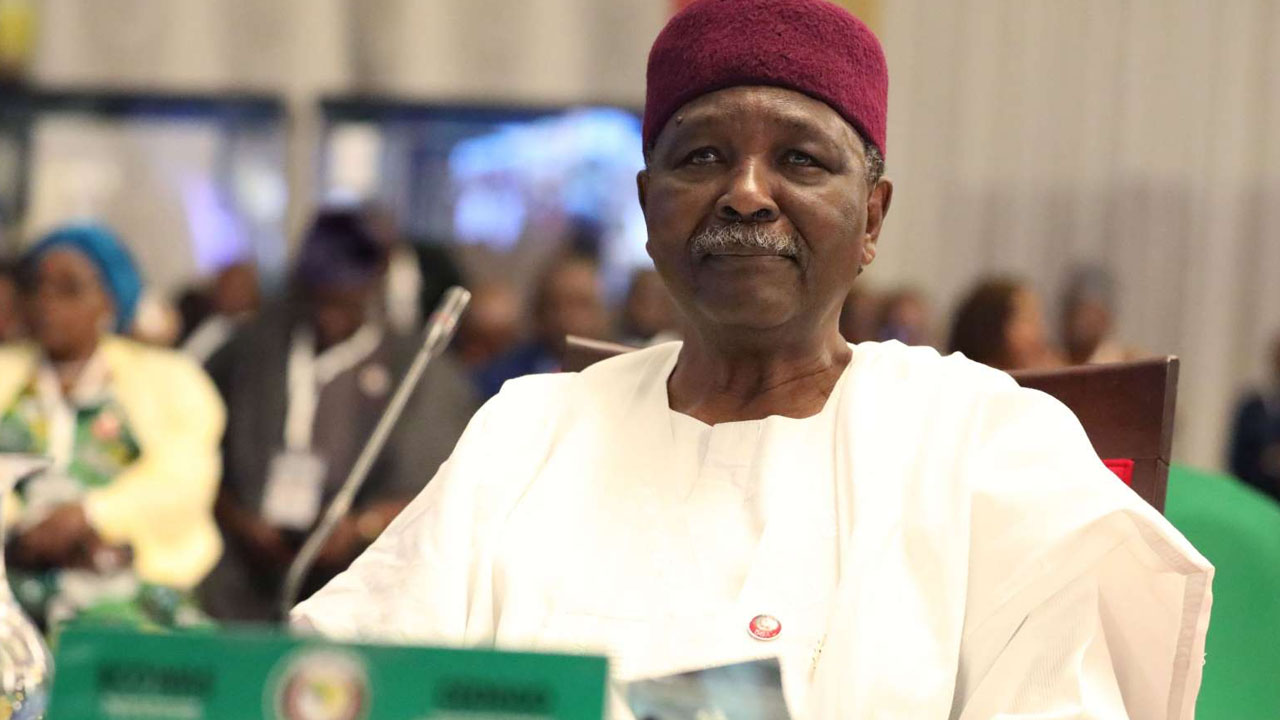How the next administration should tackle insecurity in Nigeria, by Faley
A Lagos-based lawyer and public analyst, Oluwaseun Faleye, recently spoke to the media on how to address the insecurity issues in the country. It offers advice to help the next administration tackle the threat. MUYIWA ADEYEMI was there.
What do you think is the underlying reason for the insecurity in the country? Is it driven by economic challenges or simply political in nature? Insecurity, in a given society, is mainly motivated by the lack of economic opportunities. Undoubtedly, a much more inclusive economic environment, where people can earn a decent income, will be less inclined to take actions that disrupt the peace.
The security challenge in the North will be addressed, in my view, by two fundamental actions: First, it is about recognizing the drivers of these conflicts. Security challenges exacerbated by climate change that has degraded the environment and made subsistence farming difficult in the North, fuel economic migration that drives conflict and upheaval in our communities. The other consideration is akin to resource-fuelled conflicts. We believe that the security situation in the North East and North West and more generally in the North is amplified by the exploration and exploitation of our mineral resources which abound in these States by unlicensed operators and unlicensed actors. state. The solutions are twofold. We need the Great Green Wall of the North to mitigate the effects of desertification and deforestation which aggravate economic migration and lead to instability. Nigeria's Great Green Wall is part of a larger initiative led by the African Union to combat desertification and land degradation, promote climate change adaptation and resilience strategies, and improve food security in the Sahara and Sahel regions. And under the initiative in Nigeria, the focus will be on states such as Adamawa, Bauchi, Borno, Gombe, Jigawa, Kano, Katsina, Kebbi, Sokoto, Yobe and Zamfara, which account for about 35% of the total area of Nigeria, with implications for over 50 million people to begin developing resilience and adaptation measures, promoting sustainable livelihood opportunities for communities and rehabilitating over 22,500 km2 of degraded land to agricultural purposes. These initiatives will create jobs, increase economic opportunities and ultimately contribute to reducing the state of insecurity in these areas. Another intervention concerns the fight against unauthorized and unregulated exploration of mineral resources. As I said earlier, these illegal practices fuel conflict and insecurity with non-state actors trying to control the country's mineral resources through violent means. The next government should institute a much more regulated framework for the exploitation of our mineral resources, working with local artisans and artisans to learn and earn an income. A much more regulated solid mineral space will create jobs for members of host communities.
However, the counter-insurgency measure is of utmost importance, designed to win the hearts and minds of Nigerians through targeted economic assistance and economic activities that give hope and reduce the number of Nigerians joining violent and extremist groups. despair. If we were able to defeat poverty, we would have gone far in defeating the extreme ideologies that breed terrorism and violent crime. to realize their potential. The Critical Infrastructure Protection Plan will provide measures using technology, which will eliminate attacks against national critical infrastructures such as pipelines, power plants, transmission and distribution networks, rail, maritime and airport transportation and other telecommunications assets that are essential to day-to-day operations. There should be strong national security initiatives that will perhaps reduce the state of heightened insecurity. Measures such as devolving law enforcement powers to the lower levels of our communities, building the capacity of our customs and immigration services to police our borders, and putting in place rangers will help go a long way to meeting our security challenges and creating an environment conducive to economic prosperity. The next administration should work economically to restructure our national economic model leading us towards production and export led growth rather than being an import dependent nation. This restructuring of the economic model should hinge on improving our national productivity by increasing our agro-allied activities, encouraging and increasing local manufacturing and the industrial revolution in replacement of the things that we import, in particular the articles of every day we use as a people. It is expected to step up Nigeria's major national infrastructure campaign...

A Lagos-based lawyer and public analyst, Oluwaseun Faleye, recently spoke to the media on how to address the insecurity issues in the country. It offers advice to help the next administration tackle the threat. MUYIWA ADEYEMI was there.
What do you think is the underlying reason for the insecurity in the country? Is it driven by economic challenges or simply political in nature? Insecurity, in a given society, is mainly motivated by the lack of economic opportunities. Undoubtedly, a much more inclusive economic environment, where people can earn a decent income, will be less inclined to take actions that disrupt the peace.
The security challenge in the North will be addressed, in my view, by two fundamental actions: First, it is about recognizing the drivers of these conflicts. Security challenges exacerbated by climate change that has degraded the environment and made subsistence farming difficult in the North, fuel economic migration that drives conflict and upheaval in our communities. The other consideration is akin to resource-fuelled conflicts. We believe that the security situation in the North East and North West and more generally in the North is amplified by the exploration and exploitation of our mineral resources which abound in these States by unlicensed operators and unlicensed actors. state. The solutions are twofold. We need the Great Green Wall of the North to mitigate the effects of desertification and deforestation which aggravate economic migration and lead to instability. Nigeria's Great Green Wall is part of a larger initiative led by the African Union to combat desertification and land degradation, promote climate change adaptation and resilience strategies, and improve food security in the Sahara and Sahel regions. And under the initiative in Nigeria, the focus will be on states such as Adamawa, Bauchi, Borno, Gombe, Jigawa, Kano, Katsina, Kebbi, Sokoto, Yobe and Zamfara, which account for about 35% of the total area of Nigeria, with implications for over 50 million people to begin developing resilience and adaptation measures, promoting sustainable livelihood opportunities for communities and rehabilitating over 22,500 km2 of degraded land to agricultural purposes. These initiatives will create jobs, increase economic opportunities and ultimately contribute to reducing the state of insecurity in these areas. Another intervention concerns the fight against unauthorized and unregulated exploration of mineral resources. As I said earlier, these illegal practices fuel conflict and insecurity with non-state actors trying to control the country's mineral resources through violent means. The next government should institute a much more regulated framework for the exploitation of our mineral resources, working with local artisans and artisans to learn and earn an income. A much more regulated solid mineral space will create jobs for members of host communities.
However, the counter-insurgency measure is of utmost importance, designed to win the hearts and minds of Nigerians through targeted economic assistance and economic activities that give hope and reduce the number of Nigerians joining violent and extremist groups. despair. If we were able to defeat poverty, we would have gone far in defeating the extreme ideologies that breed terrorism and violent crime. to realize their potential. The Critical Infrastructure Protection Plan will provide measures using technology, which will eliminate attacks against national critical infrastructures such as pipelines, power plants, transmission and distribution networks, rail, maritime and airport transportation and other telecommunications assets that are essential to day-to-day operations. There should be strong national security initiatives that will perhaps reduce the state of heightened insecurity. Measures such as devolving law enforcement powers to the lower levels of our communities, building the capacity of our customs and immigration services to police our borders, and putting in place rangers will help go a long way to meeting our security challenges and creating an environment conducive to economic prosperity. The next administration should work economically to restructure our national economic model leading us towards production and export led growth rather than being an import dependent nation. This restructuring of the economic model should hinge on improving our national productivity by increasing our agro-allied activities, encouraging and increasing local manufacturing and the industrial revolution in replacement of the things that we import, in particular the articles of every day we use as a people. It is expected to step up Nigeria's major national infrastructure campaign...
What's Your Reaction?






















